Tag Archive: trust
April 21, 2016
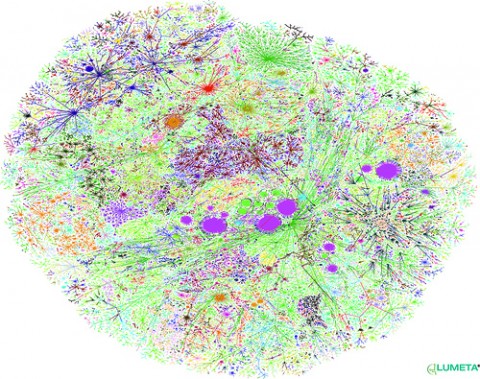
Image by Steve Jurvetson
Much of the work we do at IISC includes some element of helping to develop networks for social change. This entails working with diverse groups of individuals and/or organizations to come together and create a common vision and clear pathway to collective action and impact. I’ve been reflecting on how important it can be to not simply focus on creating or developing networks “out there” and across traditional boundaries, but also “in here,” within different recognized borders.
“When a living system is suffering from ill health, the remedy is found by connecting with more of itself.”
– Francisco Varela
The notion that part of the process of healing living systems entails connecting them to more of themselves is derived, in part, from the work of Francisco Varela, the Chilean biologist, philosopher and neuroscientist. As Varela and others have surmised, living systems are networks, including individual people, groups, organizations, and larger social systems. Furthermore, they have noted that when a living system is faltering, the solution will likely be discovered from within it if more and better connections are created. In other words, as Margaret Wheatley puts it,
“A failing system [or network] needs to start talking to itself, especially to those it didn’t know were even part of itself.”
I find it interesting in the context of social change work to consider how the process of re-connecting at and within different systemic levels can be beneficial to those levels and initiatives as wholes.
Read More
April 6, 2016
“If you don’t know the kind of person I am
and I don’t know the kind of person you are
a pattern that others made may prevail in the world
and following the wrong god home we may miss our star.”
– William Stafford, From “A Ritual to Read to Each Another”

A couple of weeks ago I was a participant in a SSIR webinar on network leadership. I spent my air time talking about Food Solutions New England as an example of a social change network that has been leveraging authenticity, generosity and trust to address issues of racial inequity in the food system. In telling the story, I realized that much of it amounts to a gradual process of shedding layers and “making the invisible visible.” Specifically, it has been about making visible power and privilege, connection and disconnection, tacit knowledge and diverse ways of knowing, and complex system dynamics. As a result, many in the network sense we are now in a better position to build from what we have in common, and that it is more likely that the vision of a vibrant, equitable and eco-logical food system will be realized. Read More
March 17, 2016

There is a difference between being a network by default and being one by intention. Sometimes that can be a big difference. I encounter a fair number of networks that are networks in name and in standing, at least in that they are connected entities. But that is pretty much it. Experience shows there are any number of different ways to structure a network, and name it for that matter.
And what I find is most important is the underlying intention to maximize network effects, including: speeding the spread of resources, ensuring resources reach everyone in the network, ensuring everyone has the opportunity to share resources, growing the overall pie of resources, strengthening adaptive capacity and collective intelligence, growing abundance and equity in many different ways.
What this boils down to is a set of network ethics, which I would summarize (certainly incompletely, and to which I invite additions and alterations) in the following way: Read More
December 11, 2015

The following is Christine Capra’s thoughtful response to my post on “Deepening Network Practice for Social Change.” Christine is a self-described network mapper, weaver, and guardian with Greater Than the Sum. NOTE: Text that is bolded represents my additions and editorial changes to the original.
She writes:
I spend a lot of time pondering the above questions [see post] as well, and appreciate your thoughts here. It’s very helpful.
Re: ‘going beyond abstraction to interaction’, Yes! And even further than interaction – in the past year or so, I’ve developed a deep appreciation for something June Holley said to me awhile back – ‘I always say – start with micro-collaborations.’ Read More
December 8, 2015
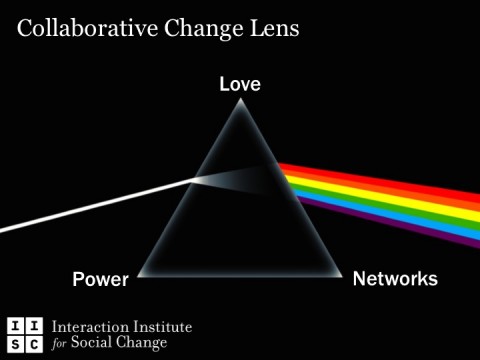
Last week, we held an internal learning session for staff and affiliates entitled “Advancing Equitable Networks.” IISC Affiliate Kiara Nagel and I presented some thoughts about our ever evolving practice of supporting network development for social change, including situating our current approach in IISC’s mission and vision, and our collaborative change lens (see above), which lifts up the importance of understanding and shifting power dynamics for equitable outcomes, embracing love as a force for social transformation and seeing networks as the underlying infrastructure of change.
We then elicited and shared some questions that are at the growing edge of our network consulting practice, including these three: Read More
November 3, 2015
“The goal is not so much to see that which no one has seen, but to see that which everyone else sees in a totally different way.”
– Arthur Schopenhauer
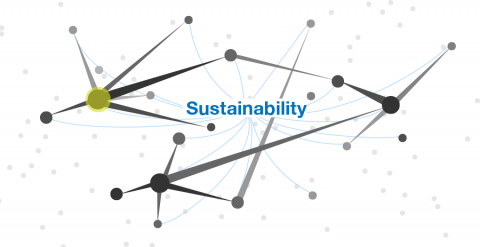
I just finished reading The New Science of Sustainability:Building a Foundation for Great Change, which added depth and nuance to my understanding of the importance of thinking and working in networked ways to create social change. Lead author Sally J. Goerner isScience Advisor to the Capital Institute and lectures worldwide on how the science of “energy networks” can provide measures and an overall narrative for supporting social, economic, and ecological sustainability. Read More
October 6, 2015
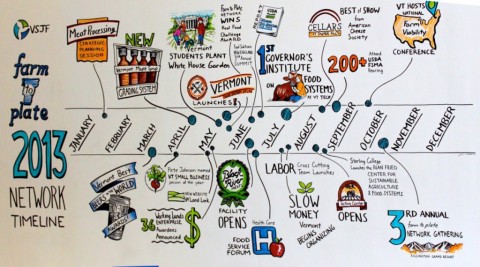
A recent report out of the University of Michigan and Michigan State University highlights a number of food systems change efforts that have adopted a collective impact approach. Two of these are initiatives that IISC supports – Food Solutions New England and Vermont Farm to Plate Network. The report distills common and helpful lessons across eight state-wide and regional efforts. Here I want to summarize and elaborate on some of the article’s core points, which I believe have applicability to virtually all collaborative networks for social change. Read More
September 24, 2015
“A generous heart is always open, always ready to receive our going and coming.”
– bell hooks

For the past month I’ve been in conversation with David Nee, former Executive Director of the William Caspar Graustein Memorial Fund, to reflect on some of our shared experiences in advancing the Memorial Fund’s collaborative work for equity in the early childhood system in Connecticut. The impetus for these reflections was an invitation to co-author a blog post for a series on “network entrepreneurship” in the Stanford Social Innovation Review. The introductory post, written by Jane Wei-Skillern, David Ehrlichman and David Sawyer, is entitled “The Most Impactful Leaders You’ve Never Heard Of.” While it is true that many of the leaders featured are not necessarily household names, this does not preclude focus on those with formal authority who are visible in their own respective domains. That said, emphasis is on what people often don’t see or appreciate about what these “network entrepreneurs” do, including making space for others (see this post for some of the key network and collaborative leadership roles that are not always appreciated). Read More
July 28, 2015

Just coming off of co-delivering a 2 day Pathway to Change public workshop at IISC with Maanav Thakore, and I’m continuing to think about how important context is to the work of social change. In particular, I’m thinking about how seeing the foundation of all change efforts as being fundamentally networked can yield new possibilities throughout the work. There is the change we plan for, and the change that we don’t plan for and perhaps cannot even imagine – emergence. This is the stuff of networks, of living systems, of decentralized and self-organized activity, which can be encouraged and supported but not often predicted or controlled. And that’s not necessarily a bad thing.
How do I have to be for you to be free?
Read More
July 1, 2015
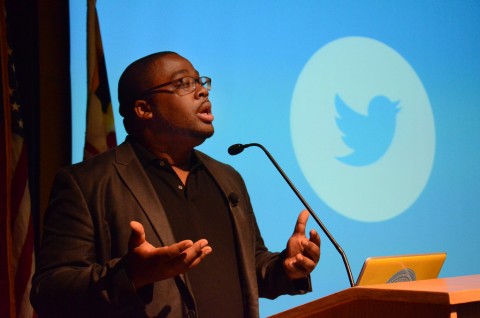
Photo by NASA Goddard
Last week I had an interesting conversation with an evaluator who was curious about some of the networks for food system development we’ve been supporting through IISC. We got to talking about “metrics,” which led into consideration of the role of story in not simply gauging network effectiveness, but also in stimulating network evolution. Communication and social learning are part of the life-blood of human networks. This is something that we’re coming to understand at a more profound level amidst the complexity of food system transformation work at all levels.
As we try to identify “leverage points” to shift regional food system dynamics in New England in the direction of increased local production, food security, economic development, resiliency and equity across the board, we are realizing that more robust connectivity and sharing across boundaries of many kinds is a significant strategy and form of structural change that can allow for critical self-organization and adaptation. Stories become one of the critical nutrients in this work.
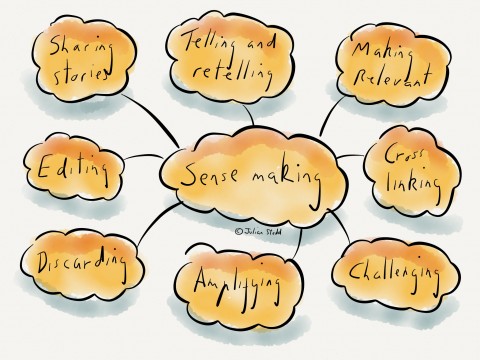
For example, as much as we have begun to share data, and importantly disaggregated data, across the region, we have found that stories often have more stickiness and staying power. The stories that were shared at last year’s Food Solutions New England (FSNE) Food Summit about racial equity and white privilege have been referenced for their impact in creating an environment of genuineness, that have spurred others to speak up and take up the conversation about the reality of structural racism in our food system. This has in turn brought more trust and diversity to the network, which has helped to create a more comprehensive understanding of the food system and possibilities for decentralized and more formally coordinated network action.
Furthermore, we have begun to solicit stories of success and innovation around embracing the FSNE Vision (of 50% self-sufficiency with regards to regional food production by the year 2060) and racial equity commitment. And coming out of this year’s Summit, there is interest in sharing stories of how people are working towards “fair price” across the food chain, in such a way that food workers, producers of varying scales, distributers and consumers have living wages and access to health-promoting and culturally diverse food. The curation of these stories we see as beginning to change the underlying economic narrative.
Stories then become fuel in many ways, providing different points of access, connection, inspiration, education, and meaning-making. Stories are like enriched compost that can be fed back into the network to nurture new growth. Our work as a Network Team, as network gardeners, is to “close the resource loop,” encourage and support more equitable channels for expression, more cross-fertilization, more interest in diverse (and concealed) stories and “processing venues” for these (virtual and in-person).
How are you using story to feed your net work forward?
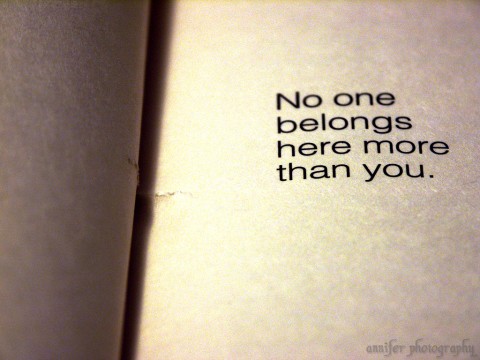
June 11, 2015
“One of the most universal numbing strategies is what I call ‘crazy-busy.'”
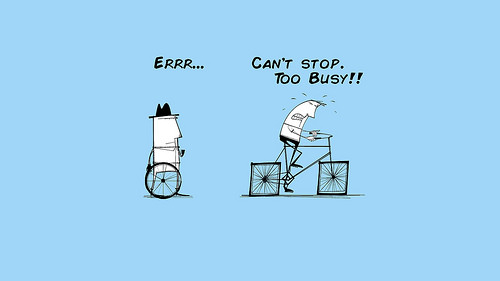
Image from Alan O’Rourke
My friend Adam Pattantyus recently reminded me of the concept of “active laziness”, attributed specifically to the writings of Sogyal Rinpoche. This reminder came at a very opportune moment. It is no secret that there is, at least in a number of circles in which we at IISC operate, a burgeoning culture of busy-ness. Many people seem increasingly pressed for time, and move between the temporal equivalent of sound bites throughout their days. The ensuing “frenzy” and exhaustion, while perhaps seen as necessary (or by some as a status symbol), is also being called out for its dysfunctional nature, including how it detracts from efforts to create positive and lasting social change. This is what Rinpoche calls “active laziness,” the compulsive cramming of our lives with activity that leaves no time to confront “real issues.” Read More
May 13, 2015
“Out on the edge you see all the kinds of things you can’t see from the center.”
~Kurt Vonnegut

Last week while having a discussion with a group about food system economics, I was reminded that the word “externalities” does not always refer to something bad. An externality can also be something beneficial that is not formally accounted for by “the market.” This had me reflecting on what can happen in networks, really any collaborative endeavor, where some of the real “goods” remain out of sight, on the edges of peripheral vision, at least with respect to where people typically tend to concentrate focus. Read More














